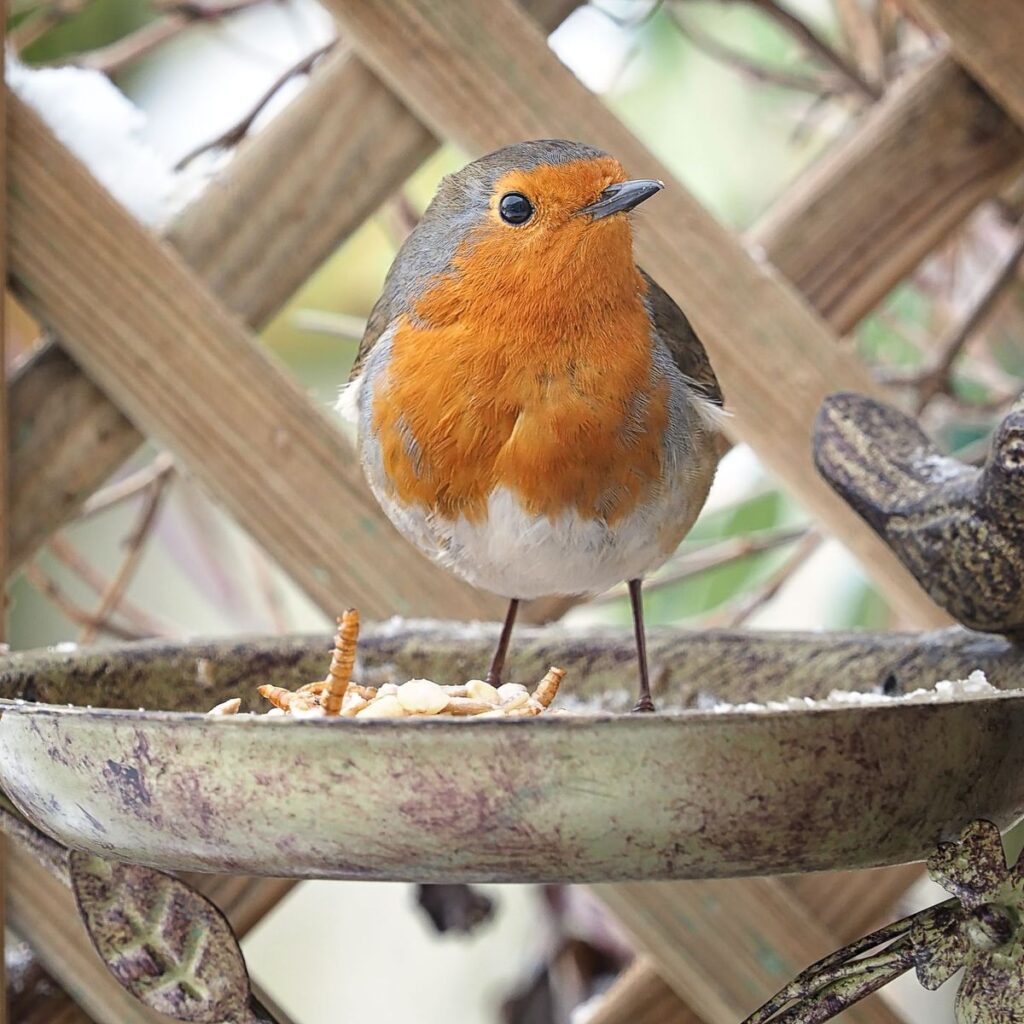Bird charity, the RSPB, has stopped the sale of its flat bird tables and related products following warnings that they could be contributing to the spread of deadly diseases to finches.
The charity committed to the protection and conservation of British birds said they were suspending the products until they have a better understanding of how the diseases spread. It is believed feeding from flat surfaces could contribute to the spread of diseases such as -trichomonosis – an illness caused by a parasite and thought to be responsible for the decline in greenfinch populations.
In winter, food becomes a scarce resource for birds, which is why it’s so important we know how to protect birds when the temperature drops. Luckily, you can still feed birds this season – and this is the safest way to do it.
Why the RSPB has stopped the sale of flat bird feeders
‘We know so many of you love feeding your garden birds and some bird species really do benefit from us putting out extra food for them, especially in winter. However, there is increasing evidence that for other birds there can also be negative effects such as the spread of disease, especially among finches,’ the RSPB told customers this week.
‘As a precautionary measure, whilst we await the findings of the review, we have suspended all our bird tables and related products, table mix and table mix extra, window feeders and feeder guardians with trays, from sale.’
It’s true we’re a nation of bird lovers and at Ideal Home, we’re always looking for ways to attract birds to our garden. However, using a flat feeding table could be doing more harm than good.
Between 2008 and 2018, greenfinch populations fell by a whopping 69% in the UK due to the parasitic disease, and using bird feeder tables or flat surfaces could contribute to the spread.
‘Providing garden birds with food on bird tables, ground trays and other small and confined flat surfaces, does carry a particular risk to the health of birds because of the increased chance of disease transmission,’ says Lucy Taylor, bird expert for Vine House Farm.
This is because the disease Tricomonosis – which especially affects Greenfinches and Chaffinches – can more easily be transmitted when an infected bird drops food onto the flat surface, which another bird then picks up.
The other main problem is bacteria from decaying food and waste from seed husks which builds up on a flat surface, potentially leading to Salmonella – which again can be fatal to birds and in particular species of finch.
How to feed birds safely
The good news is that we can still care for and feed our feathered friends – just using a different feeder.
As well as knowing how to protect your bird feeder, you should also ensure you’re using a certain type of feeder – such as hanging feeders, which has a reduced risk of spreading diseases.
‘Scattering bird food such as sunflower hearts on larger flat areas like decking, patios, driveways, or short-cut lawns is a good alternative to bird tables and ground trays. However, be sure to rotate the areas used. Ground feeding is especially important for species like blackbirds, which cannot easily use hanging feeders,’ advises Lucy.
You should also regularly clean your feeders and birdbaths to help reduce the spread of disease. Lucy also recommends rotating your feeders regularly as: Birds often feed on food that has dropped to the ground, which can easily become contaminated by waste and droppings.
Safe bird feeders to use
If you still want to feed birds in your garden, you should invest in a hanging feeder, as there is less chance of the spread of disease.
My Favourites Hanging Bird Feeder and Feeder Mix 1.5kg – Bird Feeders
Hanging Wild Bird Feeder Set of 3 Seed Nut Fat Ball Garden Feeding Station
Birds have sadly been in decline in the UK in recent years, and the spread of disease is another blow – but by exercising caution and removing your flat feeders, you will be helping ur garden birds.
Read the full article here
